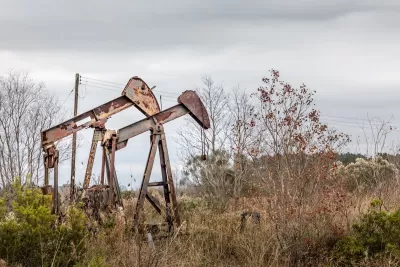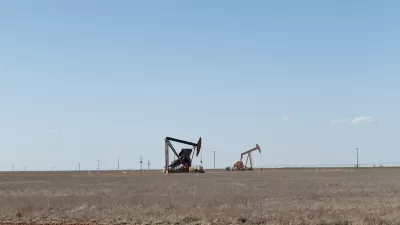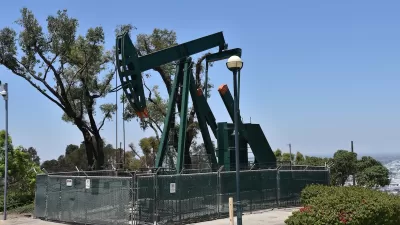Remediating and repurposing some orphan oil and gas wells into parks can turn environmental hazards into community assets, promoting health, environmental justice, and accessible green space for underserved areas.

Orphan oil and gas wells, abandoned with no responsible party, present significant environmental and health hazards across the U.S., especially in communities with a strong history of fossil fuel production. These sites release harmful pollutants, such as methane, contributing to air and water pollution and elevating climate change risks. As the nation transitions toward cleaner energy, addressing these orphan wells is crucial for environmental justice, particularly in marginalized communities that bear the brunt of pollution. By converting some of these hazardous areas into parks and public spaces, local governments and community advocates can help foster healthier environments and provide recreational spaces that benefit both individual well-being and community health.
Remediating orphan wells opens pathways to repurposing these areas into much-needed parks, enhancing green spaces, particularly in low-income neighborhoods. Parks offer more than just recreational areas; they improve air quality, provide spaces for physical and mental wellness, and help mitigate urban heat. This transformation aligns with the goals of a "just transition," prioritizing the communities most impacted by fossil fuel decline in recovery and restoration efforts. In regions where orphan wells are concentrated in densely populated, underserved areas, remediated sites can become valuable resources, addressing both public health concerns and the historical lack of accessible green spaces.
However, challenges such as high remediation costs and competing land-use interests complicate efforts to turn orphan well sites into parks. Parks and recreation advocates and professionals must navigate financial constraints, competition from commercial or residential developers, and community needs, making the case that green spaces offer long-term environmental and social benefits. Public-private partnerships may help bridge funding gaps but must be carefully managed to ensure that community interests and accessibility are preserved. With collaborative action and a focus on equitable outcomes, these remediated sites can be transformed into vibrant, accessible public spaces that benefit communities now and in the future.
FULL STORY: Addressing Orphan Oil and Gas Wells: A Path Towards Environmental Restoration and Justice

Trump Administration Could Effectively End Housing Voucher Program
Federal officials are eyeing major cuts to the Section 8 program that helps millions of low-income households pay rent.

Planetizen Federal Action Tracker
A weekly monitor of how Trump’s orders and actions are impacting planners and planning in America.

Ken Jennings Launches Transit Web Series
The Jeopardy champ wants you to ride public transit.

Crime Continues to Drop on Philly, San Francisco Transit Systems
SEPTA and BART both saw significant declines in violent crime in the first quarter of 2025.

How South LA Green Spaces Power Community Health and Hope
Green spaces like South L.A. Wetlands Park are helping South Los Angeles residents promote healthy lifestyles, build community, and advocate for improvements that reflect local needs in historically underserved neighborhoods.

Sacramento Plans ‘Quick-Build’ Road Safety Projects
The city wants to accelerate small-scale safety improvements that use low-cost equipment to make an impact at dangerous intersections.
Urban Design for Planners 1: Software Tools
This six-course series explores essential urban design concepts using open source software and equips planners with the tools they need to participate fully in the urban design process.
Planning for Universal Design
Learn the tools for implementing Universal Design in planning regulations.
Heyer Gruel & Associates PA
Ada County Highway District
Institute for Housing and Urban Development Studies (IHS)
City of Grandview
Harvard GSD Executive Education
Toledo-Lucas County Plan Commissions
Salt Lake City
NYU Wagner Graduate School of Public Service





























